1667309403.png)
Unexpecting: An Interview with Author & Loss Mom Rachel Lewis
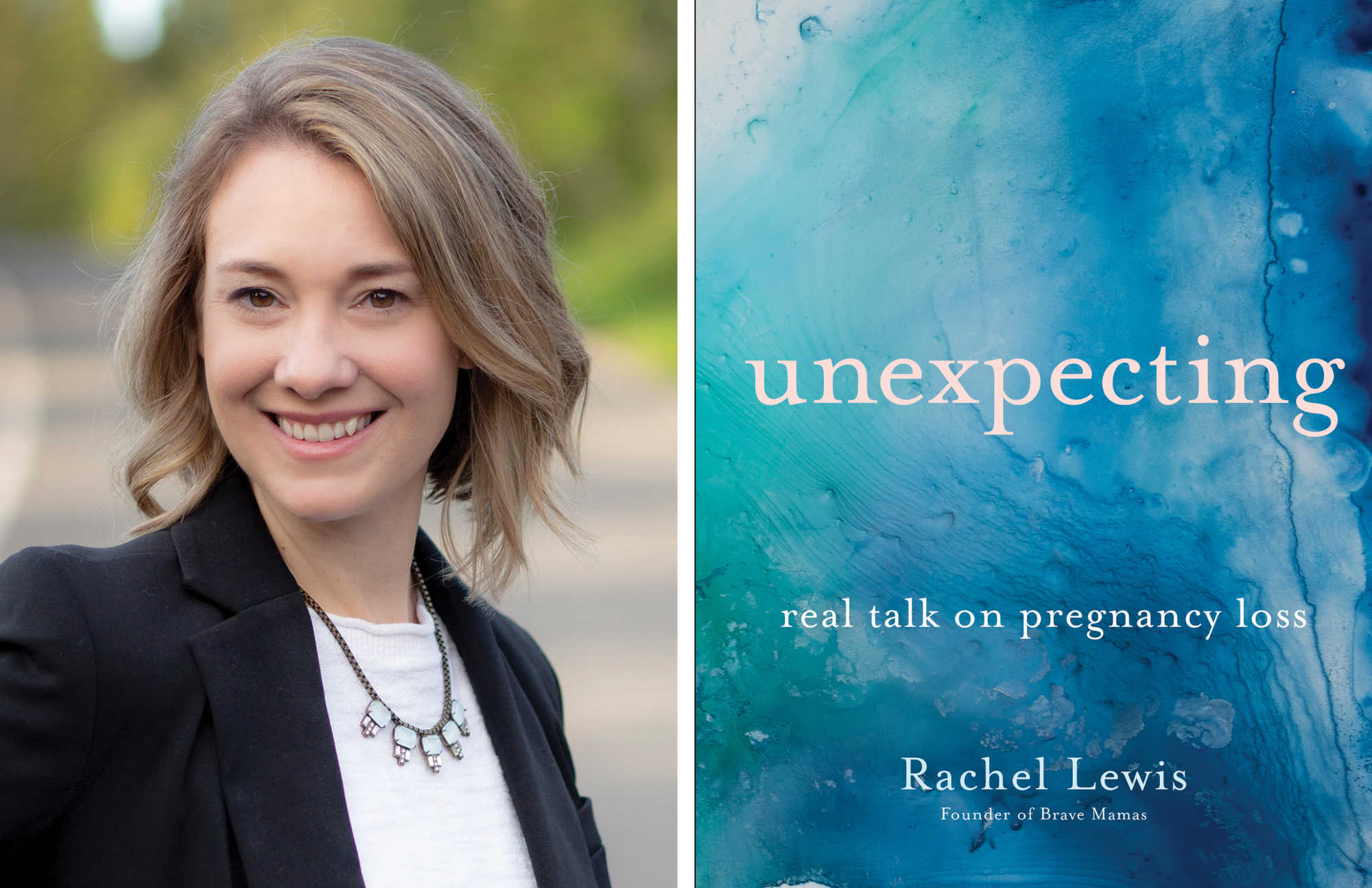 Rachel Lewis is the founder of Brave Mamas, an online community offering support to the pregnancy and infant loss community. Rachel's understanding of pregnancy and infant loss is quite personal, and as she shares in the video and the article below, but she also has the unique perspective of being a HELLP syndrome survivor as well. We're chatting with her today to talk about her newest written resource for grieving parents, Unexpecting: Real Talk on Pregnancy Loss.
Rachel Lewis is the founder of Brave Mamas, an online community offering support to the pregnancy and infant loss community. Rachel's understanding of pregnancy and infant loss is quite personal, and as she shares in the video and the article below, but she also has the unique perspective of being a HELLP syndrome survivor as well. We're chatting with her today to talk about her newest written resource for grieving parents, Unexpecting: Real Talk on Pregnancy Loss.
(Note: the following transcript has been edited for length and clarity.)
Laney Poye (LP): So could you tell us just a little bit about your personal experience with both pregnancy loss and preeclampsia?
Rachel Lewis (RL): So my first pregnancy, I had a threatened miscarriage of eight weeks. And we had the pregnancy sort of, you know, the pregnancy continued. We then had threatened premature labor at twenty eight weeks. And then at thirty six weeks, I developed severe upper abdominal pain, as well as severe nausea and vomiting and went into the hospital. And at that point, my blood pressure was still technically in the normal range. Looking back at my records, I could see that my blood pressure had actually jumped because it had been so low before, but they didn't catch that at the hospital… On Monday morning… I sort of felt like somebody put a knife in my stomach. And at that point, I had clonus with my reflexes. My blood pressure was high. It was interesting because the nurse took it and she was like, well, this can't be right.
And so they recognized that I had HELLP syndrome. But interestingly enough, they didn't use that word. I didn't know what I had for a couple of days. My mother-in-law, who's a nurse, is the one who actually told me the name of what I was going through. So it was just an immediate C-section to get [my daughter] out. And so she did survive that pregnancy, but that definitely gave me birth trauma and some PTSD from that experience, as well as affected our planning for a family moving forward.
When my daughter was two years, almost three, we… found out I was pregnant on accident. And this time, I think because I had just given up on the idea of having a pregnancy at all, I just got attached to right away.
But then, at seven and a half weeks, my [fallopian] tube tore, and I was internally bleeding and I was rushed into emergency surgery. My OB was able to save my life, and she was able to save my fertility, but of course she was unable to save my baby.
And that was the start of about five years of losses – we had five first-trimester losses over five years…
So having gone through all of that, I recognized that there's this need for us to talk about pregnancy loss more openly and to have community around this issue, because it's such a common issue. But at the same time, it's also one that's not commonly spoken of freely. So I just created the kind of support that I felt like was lacking in my own journey.
LP: You've spent many years being that compassionate online resource for the pregnancy and infant loss community through your blog, the Lewis Note and your active support programs for families of loss. So what made you decide now is the time to write and publish Unexpecting to further support this community in their time of need?
I think I knew I wanted to write a book nine years ago, when I was going through my second loss. It was different than my first in that I found out I was going to miscarry from a call from a nurse. And she just said, “Your hcg numbers have dropped. Let us know if you go through more than one pad an hour. And that was the only instruction I received on how to miscarry.”
And I went to Barnes Noble with my husband thinking, I just want to find a resource. And I don't want to wait for Amazon to deliver anything. I just want it in my hands and I want it right now… We found two books. One of them, the title insinuated that I could have just not miscarried had I tried hard enough, which I, I mean, I couldn't even open the book. I was like, no. And I tossed this across the store.
And then the other was called Taking Charge of Your Fertility, which is a very popular book. And that one is an excellent resource for anybody who's wanting to know more about their fertility and how it works. But in my circumstance, I had already tried to take charge and it didn't work. And so I just left that day feeling like there has to be a book out there. And when I couldn't find it, I was like, I'm just going to write that book…
LP: One of the hardest parts of living in the new normal following the loss of a baby, is experiencing those grief triggers that you may not expect, those intense outbursts of emotions. And, of course, preeclampsia and HELLP syndrome survivors are also at that extra risk of post-traumatic stress disorder because of what they have been through. So from your book, what are some ways that a bereaved parents can handle those unexpected grief triggers that may hit us in those moments? And how can they prepare themselves mentally and emotionally to handle them in the future?
RL: Well, one of the things that I learned to do, which was really helpful, was to prepare a response ahead of time to some of the more common triggering questions or intrusive comments, like walking down the grocery aisle with my children and having someone ask me how many kids I have. I came up with the response, “I have three at home,” and that was my way of saying, “OK, there's more. They're just not here.” But also [to say], I don't really want to get into it right now. If it’s somebody I trust or if I'm in a really good head space, I might say, “I have five babies in heaven and three here on earth, and a foster son in my heart.”…
Because we can kind of get that “deer in the headlights” feeling when somebody asks us a question that we're not prepared for… So just having a prepared like a canned response that you can practice ahead of time, it's your go-to… and you don't owe anybody a response that you're not comfortable with. You don’t owe anyone anything.
LP: That’s a beautiful reminder, even for families who have just had the loss of that expected pregnancy experience, that at the end of the day, your story is your own.
RL: Absolutely! And, you know, I think if you have the ability to have some grounding techniques, I do have a couple in my book, a couple of examples of things that you can do to help tamper down the trauma response that happens in your brain when you come across a trigger. So this may be driving by the hospital where you delivered at, or watching TV and a commercial comes on for diapers, or one day you open your mail and you get a you get an announcement for a baby shower. Those are all sort of common scenarios that can trigger that kind of response where you're where your brain starts going into survival mode… But one of the ways you sort of help calm and temper that experience down is to do those grounding techniques to help remind you that you are in the present. You are here. Your body is not in the past where this trauma happened and where loss happened.
LP: And building those walls, those selfcare walls, can help when the unexpected things trigger you. We know that when a family experiences the loss of a baby or even the loss of their expected pregnancy experience because of preeclampsia or other pregnancy conditions, people often say really well-meaning things that are ultimately totally hurtful. And I think you say in your book something like, you know, 90 percent of the things that people will say to you are well-meaning, but 75 percent of them will be misguided. Would you share a few example of those things that well-meaning loved ones sometimes say, but also some examples of better options that we all can use when we're talking about pregnancy and infant loss?
RL: The first the first one that comes to mind, I don't even have to spend in my book because it's just personal experience. After my HELLP syndrome experience. I had someone come into my labor and delivery room, and they were just like “oh, you did so good. Everything's so great!” And I just remember being so angry, thinking, do you know what just happened? No, not everything is great. No, I'm not OK.
Because like we talked about, [what they say] is well-meant. You were trying to be encouraging, but came off as dismissive… And a lot of times we've learned them growing up like “this is an OK response to grief and loss,” but the key with platitudes is that they offer a quick comfort to the supporter, to the comforter, but they're dismissive and hurtful often to the bereaved…
Take something like, “everything happens for a reason.”… And of course, for someone whose baby has died, there is no reason ever good enough for a baby to die. As a parent, I don't care what you think is the universal reason why my baby died. Like I am not OK with it. It’s just not acceptable. And so that's really painful, right? Because that that that's saying when somebody says that to you, it implies that you should be OK with your loss, that you should have this resignation or acceptance…
And another one that I would say probably we often here in this community would be, “well, you can always try again.” For the comforter, it gives this hope. And I think they feel like they're offering hope. Like we'll stop focusing on what happened and just focus on what could happen. And for those of us who've walked through loss or infertility or preeclampsia, one, we don't always know if we get to try again.
Sometimes we don't at all. Sometimes there's unexplained losses. Sometimes the effects on our body, like how our body's been ravaged by the loss or preeclampsia means that we don't get to try again. And even if we did, there's no guarantee that this baby will make it through this pregnancy, or that the pregnancy will be a healthy one, or that we’re going to survive it. And it doesn’t mean that we’re suddenly going to be okay because people are not replacable.
For comparison, if your parents were in a car accident and your dad lived and your mom didn't, it would be wildly inappropriate for someone to come up to you and say, “well, your dad can always remarry and you can have another mom.”
And if we are able to try again in or, you know, adopt or have a child in our home in some capacity, those those children don't replace the others there. They add to our family. It's kind of like when our foster son left, I would always say we're Lewis party of six minus one. You know, there's still there's still in many ways like a part of us and a part of our family, these children that that didn't get to stay.
LP: That's a great segueway to my next question, which is that many times parents of loss want to try again after the death of their baby. So what challenges might they face when they're trying again? And what are some recommendations, some of those protections that you might suggest for them as they go into an attempt to try again for another pregnancy?
RL: Well, I think, you know, especially in the context of the community to which we're speaking to now is to be very understanding of your risks, and have conversations with your medical providers about what they recommend. Get second and third opinions if you need to, whatever you need to do to feel really comfortable and good and as confident as possible. I know that after having birth go sideways, confidence is definitely one of those things that is hard to muster, but information is helpful. So find as much information about your own condition, about your own experience, and your own history. Really try to understand what happened and then talk about your future risks with your Ob or your MFM, your maternal fetal medicine specialist.
LP: So that leads me to a really important question that I'd like to have us end on, which is how can the Preeclampsia Foundation and the community that is watching this video continue to best support our [pregnancy and infant] loss community?
RL: I think that just talking about it and bringing something out into the light can be such a helpful thing. When somebody has gone through a difficult pregnancy that's ended in loss, there can be a feeling of, “well, I don't get to talk about this now.” I've heard from many people that have had a birth experience that ended in a loss that that they may be with friends and with family members and everybody else can talk about their birth. But then when it comes to the person who's had a loss, they feel like nobody wants to hear their story, even though their birth was very real and their experience was very real.
I think sometimes when we shroud things in secrecy, it in turn shrouds them in shame. And so just being able to say “this happened and it’s okay to talk about it – let’s raise awareness for these babies who have died. Let’s raise awareness that complications like this happen. Let’s normalize the conversation.” And that way, people have support.
One of the things that I turned to immediately after my preeclampsia experience was going to the Preeclampsia Foundation website and reading other people’s story, knowing that there was someone out there who could relate.
Watch the above video for the full interview. Rachel's book is available for purchase in most retail stores and online at https://unexpectingbook.com/.
Related Articles

Doulas can help bridge the gap for any mom, but especially those most vulnerable to maternal illness and death.

Stories of our brave women and families who have been affected by preeclampsia and HELLP syndrome. Please note that due to a technical issue, we are currently fixing the images on this page.
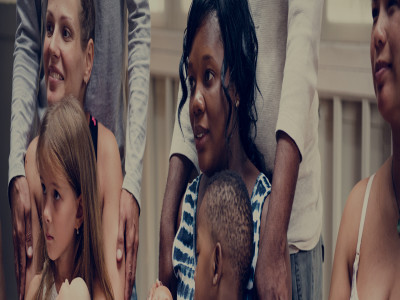
What is Preeclampsia? Preeclampsia is a hypertensive disorder that occurs only during pregnancy and the postpartum period and affects both the mother and the unborn baby. Affecting at least...

Birth Trauma Resources Between 25 and 34 percent of women report that their births were traumatic. A traumatic birth experience is defined by circumstances in which the individual patient bel...
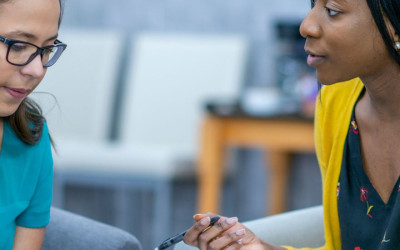
Shattered Expectations: What happens after the unexpected? You may have received the unexpected news that you have preeclampsia or another hypertensive disorder of pregnancy. Maybe labor complic...
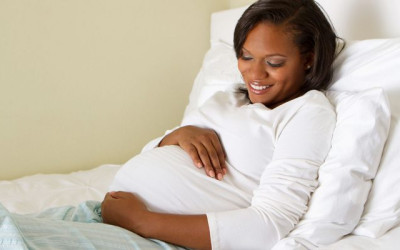
Even after more than twenty years, Mavis “Mae” Stephens, a 3x preeclampsia survivor, vividly remembers the challenges she faced during her pregnancy with her second son. She did everything...

Recientemente, me encontré con una publicación en las redes sociales señalando la crisis de salud maternal desde la perspectiva de una mujer negra. Una persona respondió a...
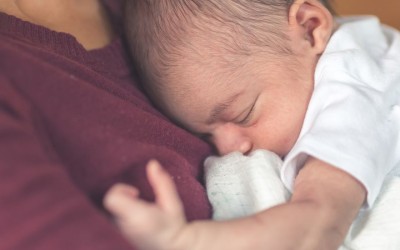
Meghan Markle is opening up about her experience with postpartum preeclampsia in the debut episode of her new podcast, Confessions of a Female Founder. In the episode with her first guest and clo...
1732072344.png)
While the Preeclampsia Foundation has been championing patient advocacy and representation for all families affected by hypertension in pregnancy throughout our 25 year history, we recognized the uniq...

